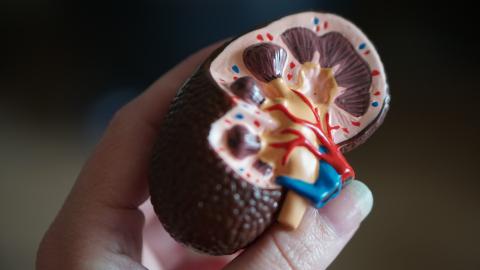Optimizing Kidney Health through Cancer Treatment

If you are undergoing drug or chemotherapy treatment for cancer, your kidney health is important to consider. Our kidneys work to filter our blood, removing waste and extra water to make urine. This job is essential during cancer treatment as our kidneys also break down and remove chemotherapy from our body. However some of those drugs can also be damaging to the kidney (the proper term for this is nephrotoxic). Whether or not a chemotherapy drug is nephrotoxic depends on the dose of the drug, if other drugs are used at the same time and if you already have kidney disease.
Although you may not be able to avoid nephrotoxic treatments, you can do some simple things to support kidney function:
- Drink water, water and then more water. First and foremost, make sure you’re drinking enough water! Staying properly hydrated is essential in helping your kidneys function at their best. It has been suggested that recurrent dehydration can lead to long-term kidney damage and potentially even chronic kidney disease (CKD). Water protects your kidneys from toxic waste buildup caused by many cancer drugs as it flushes the drug out of the kidneys. A good general guideline is 6-8, 10-ounce glasses of water per day. If your urine is light yellow or colourless, you are likely getting enough water however, when your urine is dark yellow, this indicates you are dehydrated. You should be making about 1.5 liters of urine daily (about 6 cups). Check out these 22 tips for increasing water intake: https://www.self.com/story/how-to-drink-more-water
- Avoid over-the-counter drugs that damage the kidneys, like ibuprofen and other non-steroidal anti-inflammatory drugs (NSAIDs). Talk with your physician or naturopathic doctor about other options that won’t damage your kidneys. In addition, consult with your prescribing physician about any blood pressure medicines and diuretics that you are taking, as some are more kind to your kidneys than others.
- Exercise: use daily movement to help support healthy blood pressure and blood sugar, both which, when elevated, can add to kidney damage. Choose continuous activity such as walking, swimming, bicycling (indoors or out), skiing, aerobic dancing or any other activities in which you need to move large muscle groups continuously. Work toward 30 minutes a session, gradually building up to this level. Remember that exercise has a myriad of other benefits, like improved energy, mood and sleep. Back to our first point, make sure you drink MORE water on the days you exercise! Another good general guideline is to drink ½ a cup of water for every 15 minutes of physical activity.